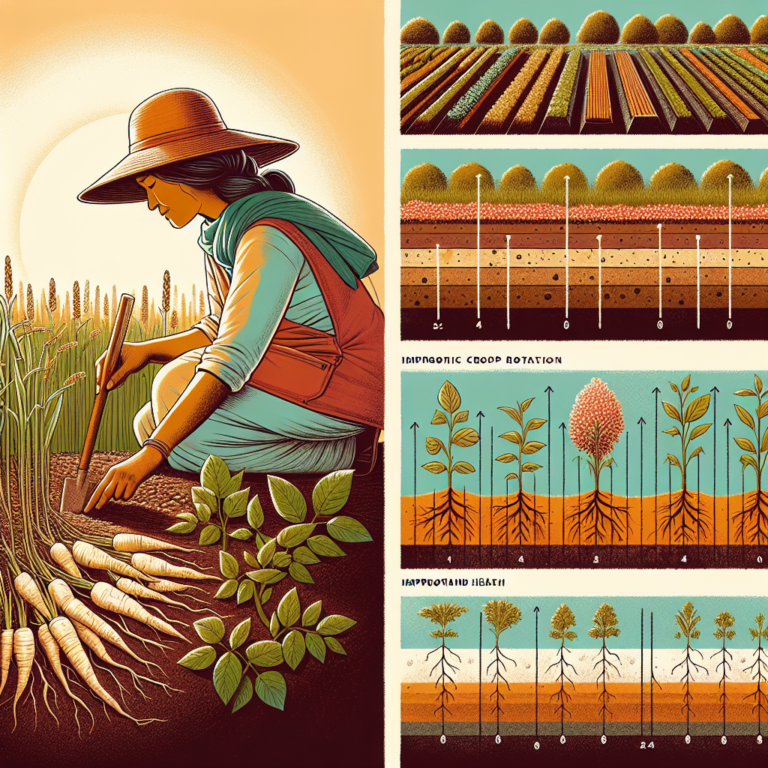Organic crop rotation is a farming technique that involves growing different crops in the same area in sequential seasons. This method is a key component of organic farming practices and has been used for centuries to promote healthy soil, reduce pests and diseases, and improve yields. Here are some of the benefits of organic crop rotation:
1. Improving Soil Health: One of the main benefits of crop rotation is its ability to improve soil health. Different crops have different nutrient requirements, and rotating crops helps to replenish soil nutrients, prevent soil erosion, and reduce soil-borne diseases. Additionally, rotating crops helps to break up soil compaction and improve soil structure, which in turn leads to better water infiltration and retention.
2. Reduced Pests and Diseases: Crop rotation can help to reduce the buildup of pests and diseases in the soil. When the same crop is grown in the same area year after year, pests and diseases that attack that particular crop can multiply and become more difficult to control. By rotating crops, farmers can disrupt the life cycle of pests and diseases, reducing their populations and minimizing the need for chemical pesticides.
3. Increased Yields: Organic crop rotation has been shown to increase crop yields over time. By improving soil health, reducing pests and diseases, and maximizing nutrient availability, crop rotation can help farmers to grow healthier, more robust plants that produce higher yields. Additionally, rotating crops can help to diversify the farm’s output, reducing the risk of crop failure and ensuring a more stable income for farmers.
4. Sustainability: Organic crop rotation is a sustainable farming practice that promotes the long-term health of the land and the environment. By maintaining healthy soil, reducing the use of chemical fertilizers and pesticides, and conserving water, farmers can help to protect the natural resources that support their livelihoods. Organic crop rotation also promotes biodiversity on the farm, providing habitat for beneficial insects and wildlife.
Overall, organic crop rotation is a valuable tool for farmers looking to improve the health and productivity of their land. By rotating crops, farmers can promote soil health, reduce pests and diseases, increase yields, and promote sustainability on their farms. So, if you want to improve your soil health and crop yields, consider incorporating organic crop rotation into your farming practices.
